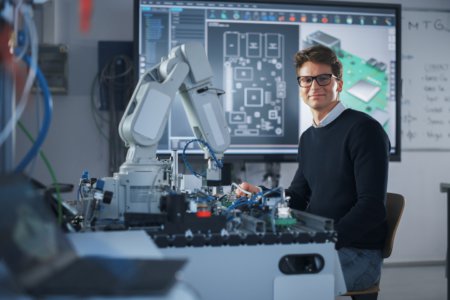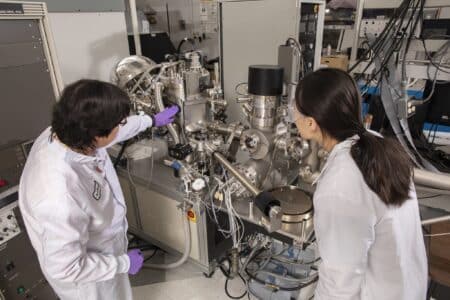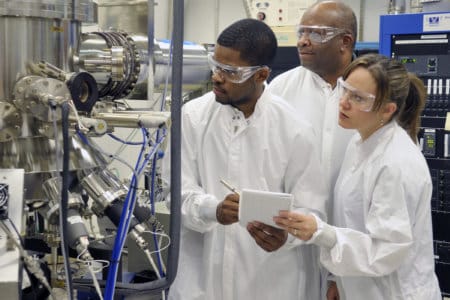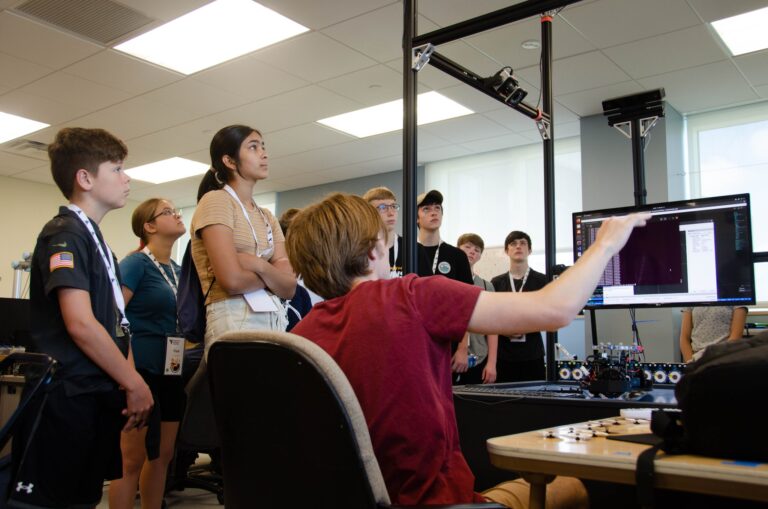
From pencils to Paris’s Eiffel Towel, almost every object can be improved with the expertise of mechanical engineers. It’s in their deft design, construction, and use of machines that we can have a fuller appreciation of the wonders of technology.
Perhaps what’s more important in a world dealing with a climate crisis is how this field that began with just the wedge and ramp is crucial to solving some of the greatest challenges today. There are more solar panels and wind turbines to be built, structures to withstand extreme patterns, and buildings that not only keep their residents safe and secure but maximise their well-being too.
The best universities understand the full power of this field and its applications. Thus, whether through research opportunities or industry placements, they ensure students receive enough experience and exposure that’ll set them up for senior roles in industry and academia. A selection of schools with a track record of achieving this, each with their own unique programmes and features, are provided below:
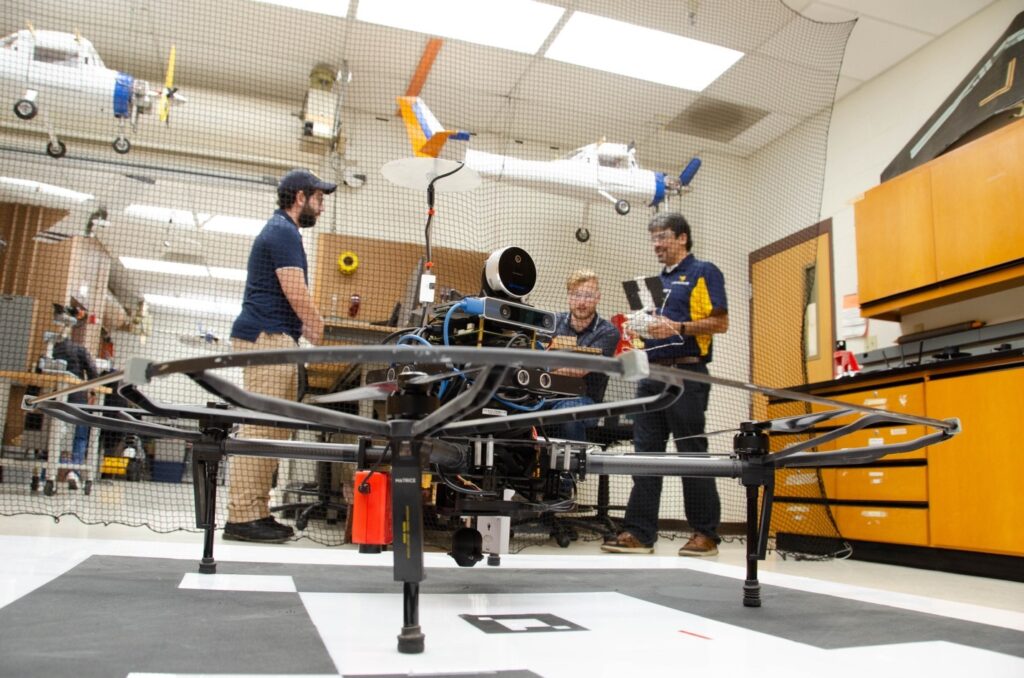
Energy Materials and Manufacturing, Aerospace and Space Systems, Robotics and Autonomous Systems, and Alternative Fuels and Engines research areas receive more than USD$10M in research expenditures. Source: WVU Statler College of Engineering and Mineral Resources/Facebook
West Virginia University
When you join the Department of Mechanical, Materials and Aerospace Engineering (MMAE) at West Virginia University (WVU), you become part of a community of experts who will guide you towards success in academia and industry through graduate programs with high research activity.
As the world focuses on potential energy solutions, you can join the experts in the Materials Science and Engineering program and dive into research applications on solid oxide fuel cells, hydrogen energy, sensors, clean energy, and more. The Aerospace Engineering program focuses on aerodynamics and space situational awareness, and fluid mechanics with state-of-the art testing facilities. Globally known for unveiling the Volkswagen emissions scandal in 2015, the Mechanical Engineering program uncovers research focused on alternative energy and emissions . Students in the world-class Robotics program have won several competitions when they’re not taking a multidisciplinary approach targeting robot systems design, field robotics, bio-inspired robotics, multi-agent systems, reinforcement learning, and more.
Such achievements and resources are thanks to the significant funding the department gets — over US$10 million annually — from all major government agencies, including the National Science Foundation, the US Department of Energy, the US Department of Defense, and the National Aeronautics and Space Administration. These support more than 120 graduate students, mostly through funded research assistantships, and provide them with the experience to land internships and permanent positions at the likes of Intel, Qualcomm, Academia and Brookhaven National Lab. In fact, even before graduating, many students can already add to their CVs that they’ve co-authored their research in high-quality Q1 research journals.
WVU is located in Morgantown, a city that gives off a “small town feel” and plenty of amenities for you to call your second home. The affordable cost of living and housing options are huge draws for international students to reside here, whether in residence halls, Living Learning Communities, or university apartments. Don’t let curiosity end in the classroom, on off days, venture to the regions’ numerous outdoor recreational activities and within the major East Coast metropolitan areas in close proximity such as Pittsburgh and Washington, D.C.
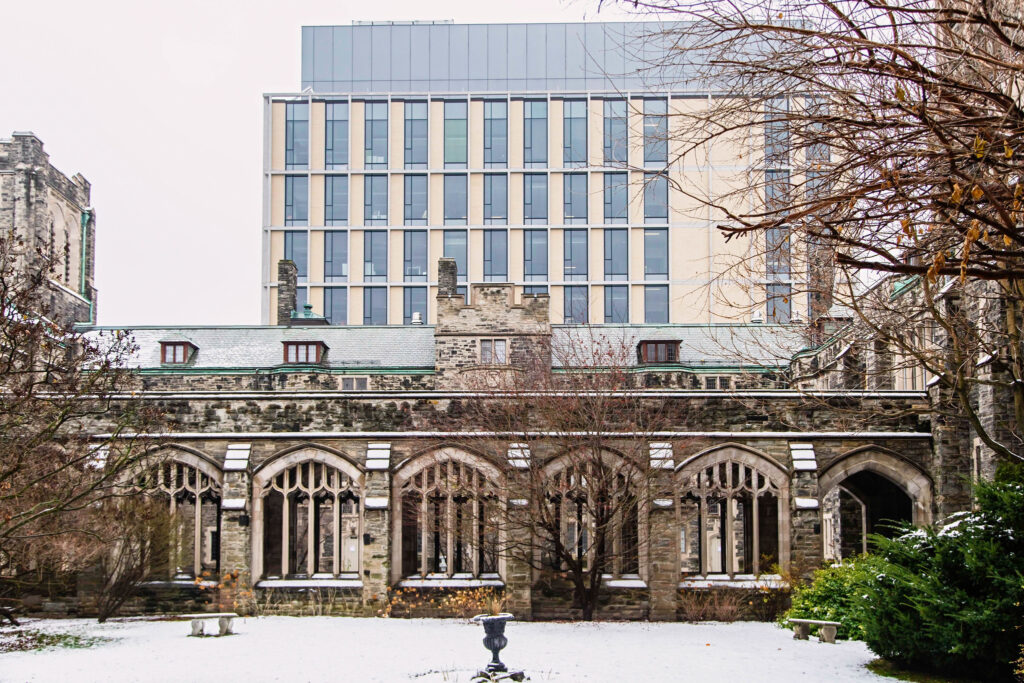
Robotics, Mechanics & Design, Materials, and Thermofluids are the focus areas of research. Source: Mechanical & Industrial Engineering/Facebook
University of Toronto
Founded in 1827, the University of Toronto is one of the world’s top research-intensive institutions, bringing brilliant minds together to address today’s pressing challenges in engineering. The university prepares students for success through an outstanding global education rooted in research-based learning. At the Department of Mechanical & Industrial Engineering, specifically, students are exposed to hands-on research led by its world-renowned faculty. There are eight main areas that the department focuses on, four of which are mechanical engineering-related.
Robotics, Mechanics & Design, Materials, and Thermofluids are the focus areas of research in which aspiring mechanical engineers can collaborate with professors, postdoctoral fellows, industry and community partners, and staff. What sets the department apart is how it gives students have the luxury of accessing more than 50 laboratories and research centres to assist with their work.
“We do so much research that is focused on improving quality of life for other people,” associate professor Dionne Aleman says. “Whether it’s on the industrial engineering side of our department or the mechanical engineering side of our department or any of the cross collaborations that we have between, there’s just a ton of work that’s focused on improving society.”
Located on the grounds surrounding Queen’s Park, the university offers housing options for both local and international students. They can opt for affordable and convenient housing near the three campuses (Mississauga, St. George, and Scarborough). Master’s and doctoral-level students are entitled to the Graduate House, the only residence in the university reserved exclusively for them.

The Department of Mechanical and Aerospace Engineering emphasises five research areas. Source: University of California, Irvine
University of California, Irvine
Students who want to inspire change and generate new ideas for the engineering field should join the Department of Mechanical and Aerospace Engineering at the University of California, Irvine. In this department, they will gain research experience that stimulates knowledge, discovery, and creativity development. This is where they get to blend engineering fundamentals they learn in lecture halls with hands-on design experience, which often leads to further research opportunities in laboratories.
The department has five research areas, namely Dynamics and Controls, Mechanics of Materials and Structures, Fluid Dynamics and Propulsion, Systems and Design, and Thermal and Transport Sciences. Students will work with the department’s educators, faculty members, and teaching staff, who are experts in their fields. This ensures that they learn from the best in the industry, in addition to using cutting-edge experimental and computational facilities provided by the department.
For example, doctoral candidate Sumner Norman is exploring robotics-based therapies to help stroke victims. “I see an entirely different side to these technologies,” he says. “The main goal of my research is to demonstrate that machines and humans can work well together.” Meanwhile, UCI doctoral student Bin Xing is part of a team creating a machine-learning framework representative of structure and chemistry called the neuron map to search and identify materials with optimal compositions to improve the performance of energy systems.
Such breakthroughs take place in a university is located in the heart of beautiful Orange County, nestled between Los Angeles and San Diego and just minutes away from SoCal’s sunny shores. Amusement parks, cultural centres, art theatres, and many other places are within driving distance from the university. Experience the combination of the natural outdoors and the bustling city where you can study, work, live and play in one of the safest cities in the US.

The Michael W. Hall School of Mechanical Engineering focuses on two primary research areas: heat transfer / fluid mechanics and mechanical systems / materials. Source: Mississippi State University
Mississippi State University
“I wanted to find a university with a quality engineering programme and one that valued transfer students and international students. Mississippi State was the easy decision,” Philippe Schicker says.
What the mechanical engineering graduate said is a testament to the Michael W. Hall School of Mechanical Engineering’s excellence in engineering education and research. The third largest department at Mississippi State University offers student research opportunities that will impact the engineering world in terms of energy saving, national security, health, and environmental protection applications.
The school focuses on two primary research areas. One is in heat transfer and fluid mechanics with projects that include Computational Fluid Dynamics, Solidification Modelling, Combustion Engines, Energy Conservation, Thermal and Fluid Systems Modelling, Advanced HVAC Technology, and Uncertainty Analysis. The other is in mechanical systems and materials that include projects such as Finite Element Analysis, Powder Metals, Smart Materials, Fatigue, Computational Materials Engineering, Friction Stir Welding, and Composite Materials.
When students aren’t contributing to important discoveries, they’re making the most of being part of a close-knit campus and city. Studying at Mississippi State University means being in a community of friendly Starkville residents who are always working to make students feel they’re in a home away from home. The delicious local restaurants and great shopping spots, along with the fun festivals and sporting action make the college town an ideal and safe place for students to learn and live.
*Some of the institutions featured in this article are commercial partners of Study International








